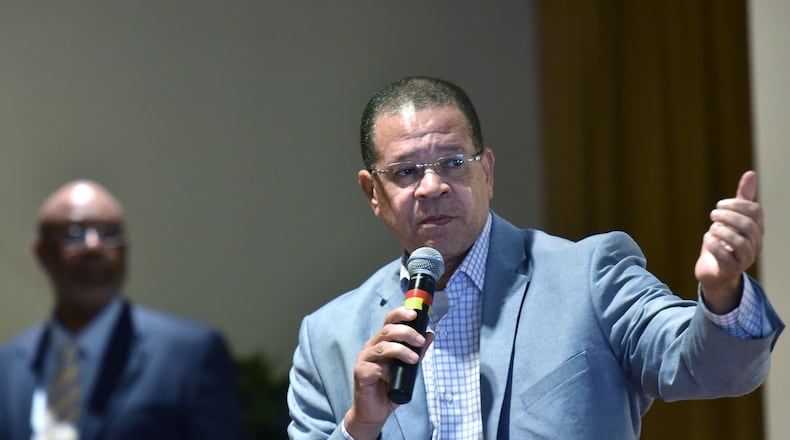More than a year ago, Fulton County commissioners decided to outsource mental health services they've long provided to residents. Wednesday, they are scheduled to decide who will provide those services.
The move is intended to increase the number of people served — to 4,000, from 1,500. The county estimated it had about 34,000 uninsured residents who could use mental health care, including help with addictions, therapy or diagnosis.
“As a patient, you’re going to have access to care faster,” said LaTrina Foster, director of behavioral health and developmental disabilities for the county. “We’re going to have the staffing necessary to address needs faster.”
The county had been spending about $3,200 a person to provide mental health services, while outside agencies spent closer to $1,200 per person. All told, the county spends between $6 and $7 million a year on mental health care for residents.
The proposal calls for the county to split mental health care between two providers — one for adults and one for children and young adults up to age 24. The providers will focus on at-risk groups, like the homeless population, and provide both group and individual therapy.
River Edge Behavioral Health, which will provide the services to adults, will partner with local hospitals and other organizations. It is expected to serve 3,000 people on a $4 million contract.
Chris 180 will serve 1,000 children and young adults for $2 million. The services will include school-based therapy services and an adolescent substance abuse program.
Foster said the county will “get more bang for our buck” with the new contracts. Both are for five-year periods, with the option to renew each year over those five years.
By moving to the contracts, the county is also aligning itself with the state system, which it will use to track patients and their outcomes across a range of providers.
Additionally, the decision could create an opportunity in the future for Fulton to serve as a liaison for state funding. Now, the state gives about $21 million to more than a dozen behavioral health providers in the county. In the future, the state could give that money to Fulton to distribute, allowing the county to be the group that coordinates care.
Judy Fitzgerald, commissioner of the state department of behavioral health and developmental disabilities, said in an emailed statement that she was proud to partner with the county to strengthen Fulton’s safety net.
“Fulton County has taken a thoughtful and innovative approach to expanding access to behavioral health services,” Fitzgerald said.
By serving more people, Foster said, the county is ensuring more people with mental health diagnoses are able to maintain their jobs and lives.
“The end goal is to make sure people with mental health needs have them addressed and are able to live independent lives,” she said.
In addition to serving more people, the providers will be in more locations: The Center for Health and Rehabilitation and both the North and South annexes for adult services, and the Oak Hill and Adamsville health centers, as well as the Fulton County Clubhouse for Youth.
If commissioners approve the programs, some will begin Oct. 1 while others will go into effect Jan. 1.
“We want to do something more significant than what we’re doing today,” Fulton County Manager Dick Anderson said. “It’s how we serve more people.”
MYAJC.COM: REAL JOURNALISM. REAL LOCAL IMPACT.
The AJC's Arielle Kass keeps you updated on the latest happenings in Fulton County government and politics. You'll find more on myAJC.com, including these stories:
Never miss a minute of what's happening in Fulton politics. Subscribe to myAJC.com.
In other Fulton news:
About the Author
Keep Reading
The Latest
Featured





